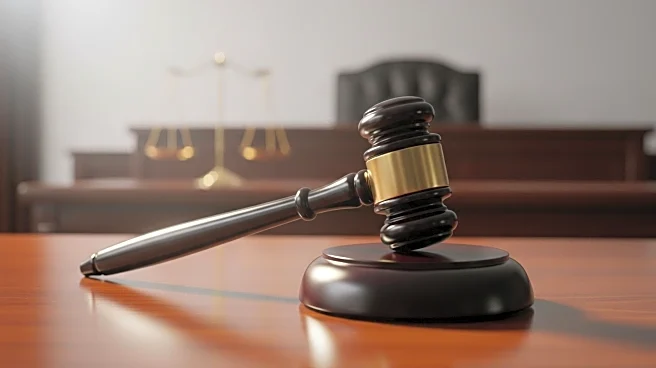What's Happening?
Drake's lawsuit against his record label, Universal Music Group, has been dismissed by a federal judge in New York. The lawsuit was filed in response to Kendrick Lamar's song 'Not Like Us,' which accused Drake of pedophilia. Judge Jeannette A. Vargas ruled that the song's lyrics were nonactionable opinions, not factual statements. The case was part of a rap battle between Drake and Lamar, involving multiple diss tracks with intense rhetoric. The judge concluded that the song's context did not convey factual accusations, thus dismissing the defamation claim.
Why It's Important?
This ruling is pivotal for the music industry, particularly in the realm of rap, where diss tracks are a common form of expression. It highlights the legal distinction between opinion and defamation, providing artists with a degree of protection for their creative works. The decision may influence how artists and labels approach controversial content, knowing that courts may favor artistic expression over defamation claims. This could lead to more bold and provocative music releases, as artists feel more secure in their creative freedom.
What's Next?
Following the dismissal, Universal Music Group can continue its business operations without the burden of the lawsuit. Artists may feel encouraged to explore more daring themes in their music, knowing that the legal system may protect their artistic expression. The ruling could lead to discussions within the industry about the boundaries of creative freedom and the responsibilities of artists and labels in handling sensitive topics. Drake and Kendrick Lamar may continue their artistic rivalry, potentially resulting in more music that challenges conventional norms.
Beyond the Headlines
The case raises important questions about the balance between artistic freedom and personal reputation. It highlights the ethical considerations for artists and labels when releasing content that could impact an individual's public image. The ruling may spark debates on the limits of free expression in music, particularly in genres known for their confrontational style. Long-term, this could influence industry standards and practices regarding the release of controversial content, potentially leading to clearer guidelines on defamation in artistic works.










